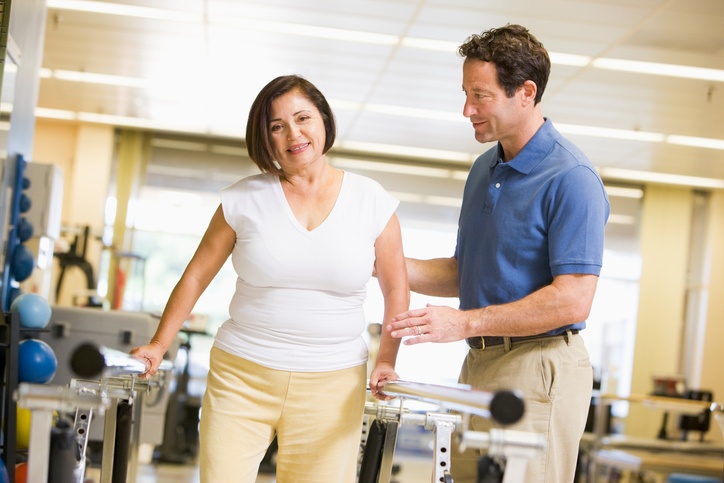Successful recovery from hip replacement surgery hinges upon a comprehensive recovery strategy. A proactive approach to the recovery process is especially the case for seniors, as they are particularly susceptible to infections and complications. Below are ten tips to facilitate hip replacement recovery for seniors.
1) Outline a recovery strategy before surgery. Do not wait until after your hip replacement surgery to start planning a recovery strategy. The recovery process is more likely to proceed smoothly and without incident for seniors if a comprehensive recovery plan is developed prior to surgery.
2) Ensure that the recovery area is completely clean. A clean recovery environment plays a vital role in preventing infection. Prior to surgery, ensure that all sheets and bedding are freshly laundered and that all dirt, dust, and debris have been removed from the floor and furnishings. Thoroughly clean bathrooms and ensure that there is an ample supply of clean, lint-free towels and wash cloths.
3) Make a commitment to attend all aftercare appointments. Follow-up care is vital to a successful recovery. Failure to participate in physical therapy sessions and post-surgical medical care appointments can delay recovery for seniors. Be sure to mark all appointments on a calendar and secure assistance with travel arrangements well in advance.
4) Create a clear path inside the home or recovery area. A crowded, cluttered recovery environment can be hazardous to seniors after hip surgery. Conduct a complete walk-through of the home to ensure that all clutter, cables, cords, and debris have been removed from the floor. Make sure that floors are kept clean of spillage and moisture to help prevent slips and falls.
5) Exercise extreme care when changing dressings or bandages. In many cases, a family member, friend, or caregiver will provide assistance with dressing changes. If possible, caregivers should receive instructions on cleaning the incision and surrounding area from a trained medical professional prior to the patient's discharge.
6) Take all medications as directed. This is especially important for seniors who are already taking multiple prescription medications. Special attention should be paid to the consumption of pain medications. Failure to take pain medications with sufficient frequency can lead to discomfort and a miserable recovery process, while overconsumption of pain medication can foster dependence.
7) Resist the urge to do too much too soon. Maintaining a realistic view of the recovery process is vital to a safe recovery. While it may be tempting to want to try to navigate steps, drive, or travel, seniors must proceed with caution in order to reduce the risk of injury or complications.
8) Postpone sexual activity until after a successful recovery. Engaging in sexual activity too soon following hip replacement surgery may hinder the recovery process. In general, specialists recommend waiting six to twelve weeks before engaging in sexual intercourse after surgery.
9) Strive to maintain your overall health. Recovery from hip replacement surgery is optimized when seniors remember to focus on maintaining all aspects of their physical and mental well-being. Remember to coordinate with the patient's primary care provider and seek medical care promptly if any signs of physical illness or depression arise.
10) Don't be afraid to ask for help. Seniors should be encouraged to seek help from loved ones and caregivers when pain, depression, and illness arise following hip replacement surgery. Seniors should also have immediate access to their medical care providers in case complications arise.
Please contact us for more tips to help seniors experience a prompt recovery from hip replacement surgery. Our team of professionals is familiar with the challenges facing seniors who are recovering from surgery. We look forward to providing seniors with the support and guidance they need to enjoy a speedy recovery and regain their full mobility.


